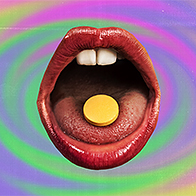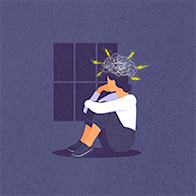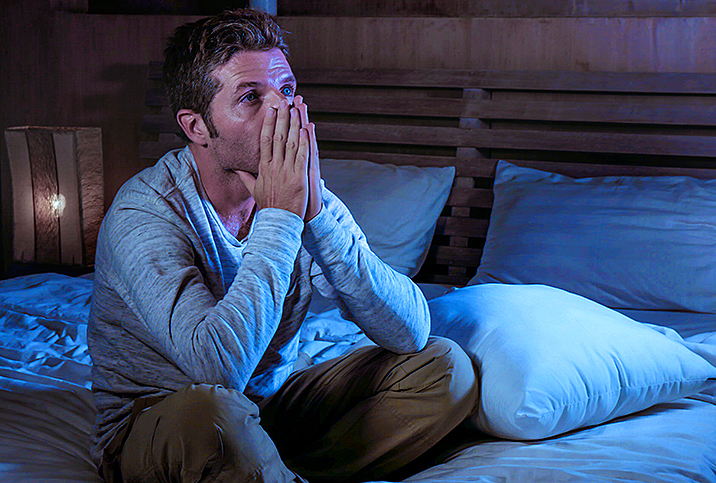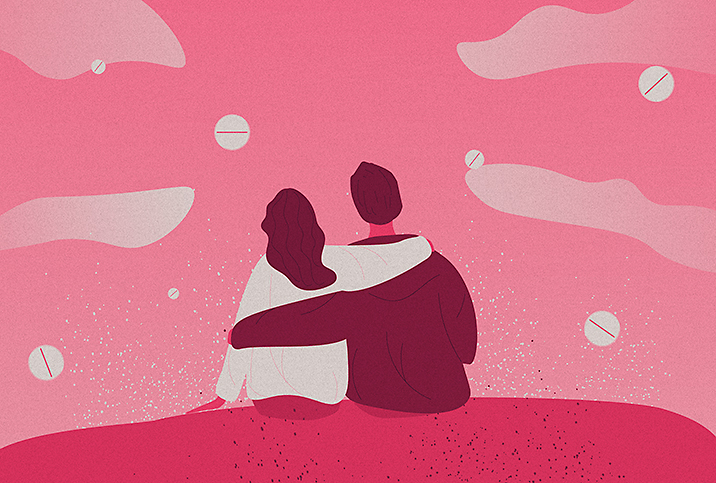When Natural Interventions Aren't Enough for Anxiety and Depression

I've written about my personal mental health journey before, but as with any adventure, things constantly change. When I started on the road to better mental health, I was determined to make it work without medicinal intervention because, like so many patients before me, I believed in the negative stigma that deemed people weak if they had a mental illness.
However, let me say from the outset that it requires great strength for people to improve their mental health. And we could never possibly succeed without the help of our mental health professionals.
Yes, it's a mental illness
"The more people talk about mental health, raise awareness, the fewer people will fear psychiatry," said Holly Swartz, a professor of psychiatry, University of Pittsburgh, and Depression and Bipolar Support Alliance consultant. "We're just people really, and we want to help you take care of mental health, just like any other physician."
It doesn't matter what you want to call it: a mental health condition, mood disorder or simply struggling to manage your mental health. No matter what label you choose, you have a mental illness.
Before I sought out a psychiatrist, I managed my anxiety and depression fairly well on my own—or so I thought. I tried talk therapy and cognitive behavioral therapy (CBT), and I mastered the different coping skills such as the handy acronym HALT—which stands for Hungry, Angry, Lonely or Tired, which makes you analyze your feelings before acting on them—to learn when a trigger was present and to anticipate an episode.
'The more people talk about mental health, raise awareness, the fewer people will fear psychiatry.'
However, it wasn't until I tried using medication that I realized I wasn't managing my mental health effectively.
"Medication does help," Swartz said. "But it's just one option that we can try to address a patient's symptoms. If it works, that's great, but if not, there are other treatments we can try."
I've tried many of them, though not all, and these interventions do work. Furthermore, I know many people who use them effectively and have found a healthy balance, but I needed more.
The key to this patient process is to be open to new treatments.
The stigmas of medication
"One of the biggest goals of treatment is considering the life that you want to live and how we can help you reach those goals through treatment," said Debra Kissen, chief executive officer of LightOnAnxiety.
For many patients, reaching these goals can take a combination of approaches that collectively form a balanced mental health initiative. When you take a beat to think about it, this is obvious. When we think of our physical health, mental health is categorized as something different, which could contribute to the stigma of seeking treatment.
Some medications that are effective for anxiety and depression are selective serotonin reuptake inhibitors (SSRIs), which are typically the first-line treatment, or serotonin-norepinephrine reuptake inhibitors (SNRIs), which are typically used as a second-line option. These interventions work to address the serotonin levels in the brain and are effective in managing anxiety symptoms.
For depression, tricyclic antidepressants (TCAs) can be effective for patients who are managing anxiety along with depression, but these antidepressants are typically chosen after other options have failed, as there are many side effects, such as headaches, irregular heart rhythms, sexual dysfunction, weight gain and constipation.
No matter what you and your doctor choose, the reality is that the only way to get these medications is through a prescription from a doctor, such as a psychiatrist. A counselor can only make recommendations, but it's up to a licensed medical professional to make a determination on whether you need medication. However, if you don't want to go to a psychiatrist, your family doctor can also prescribe these medications.
While I trust my doctor, I knew a psychiatrist would be better trained to understand the proper medication and dosage for me. I wanted to ensure that if I needed medication, I had someone who could evaluate my mental health and help me find and monitor a medication that treated my symptoms.
Treatment is not one-size-fits-all
Medication options are dependent on symptoms. For some patients, the mood issues that can accompany anxiety and depression may be the most impactful. When symptoms of depression are debilitating, medicinal intervention is required to help patients get through their darkest times.
Medication is not a cure, and as my psychiatrist described it, medication doesn't change who you are or solve the problem. But it can give you a longer fuse, so you can implement the coping strategies your counselor, psychologist or psychiatrist can provide to help you manage your triggers in the moment.
"When we're filled with emotion, it's really hard to think slowly and carefully," Kissen explained. "So [it's important] having that mantra, such as 'be here now'...something that's easy for your emotional brain to take in."
Regardless of your treatment plan, it's important to understand these interventions will feel like trial and error at times. The specific coping skills that work today might change, and a medication that works for someone you know might not work for you. However, the more you work on your triggers and coping skills, you will learn about how your brain responds to your daily stresses. And eventually, you may better manage your mental health so you can enjoy your life without feeling as though your anxiety and depression are controlling you.




















